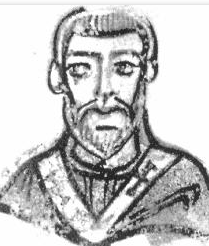Evagrius Ponticus Quotes
Prayer is an ascent of the spirit to God.
Prayer is the laying aside of thoughts.
For prayer is the rejection of conceptions.
Blessed is the one who has arrived at infinite ignorance.
Happy is the man who thinks himself no better than dirt.
A monk is a man who is separated from all and who is in harmony with all.
Do you wish to pray? Renounce all things. You then will become heir to all.
To be sure, it is not the mind itself, which sees God, but rather the pure mind.
Happy is the spirit that attains to the perfect formlessness at the time of prayer.
Happy is the spirit which, praying with distraction, goes on increasing its desire for God.
Having come to be in prayer, it enters into the formlessness which is called the “place of God.”
When you give yourself to prayer, rise above every other joy — then you will find true prayer.
The impure mind is the one that lingers over a blameworthy passion (that comes up) through sensory objects.
Happy is the spirit that attains to complete unconsciousness of all sensible experience at the time of prayer.
A monk is a man who considers himself one with all men because he seems constantly to see himself in every man.
The mind would not see the “place of God” in itself unless it has been raised higher than all the representations (noe¯mata) of objects.
When you pray, do not shape an image of the divine in yourself; do not allow any form to be imprinted on your mind; approach the Immaterial immaterially and then you will understand.
The proof of apatheia is had when the spirit begins to see its own light, when it remains in a state of tranquility in the presence of the images it has during sleep and when it maintains its calm as it beholds the affairs of life.
Remember how the Lord rebukes Martha when He says: 'You are anxious and troubled about many things: one thing alone is needful' (Lk. 10:41-42) ? to hear the divine word; after that, one should be content with anything that comes to hand.
It is difficult to escape the tempting thought of vainglory, because whatever you do to subjugate it becomes the occasion for renewed vainglory. Our proper thoughts are not all opposed by the demons; some of them are opposed by our own individual vices.
If one wishes to see the state (katastasis) of the mind (nous), let him deprive himself of all representations (noe¯mata), and then he will see the mind appear similar to sapphire or to the color of the sky. But to do that without being passionless (apatheia) is impossible, for one must have the assistance of God who breathes into him the kindred light.
The mind sometimes goes from one representation to other representations, sometimes from one contemplation to other contemplations, 〈and again from a representation to a contemplation〉 and from a contemplation to representations. But there is a (time) when it runs from an imageless state to representations or to contemplations and back again from these to the imageless state. This thing happens within it in the time of prayer.
If there is any monk who wishes to take the measure of some of the more fierce demons so as to gain experience in his monastic art, then let him keep watch over his thoughts. Let him observe their intensity, their periods of decline, and follow them as they rise and fall. Let him note well the complexity of his thoughts, their periodicity, and the demons, which cause them, with the order of their succession and the nature of their associations. Then let him ask from Christ the explanation of these data he has observed.
The demons that preside over the passions of the soul [i.e. anger] go on until we die; those which preside over the passions of the body leave sooner. Other demons are like the rising or setting sun and affect only one part of the soul; but the noonday demon generally enfolds the whole soul and suffocates the mind. This is why the solitary life is sweet after we have cleared out the passions; then our memories are simply memories, and the point of the monk’s struggle then is not to make him ready to do battle, but to enable him to contemplate the struggle itself.

